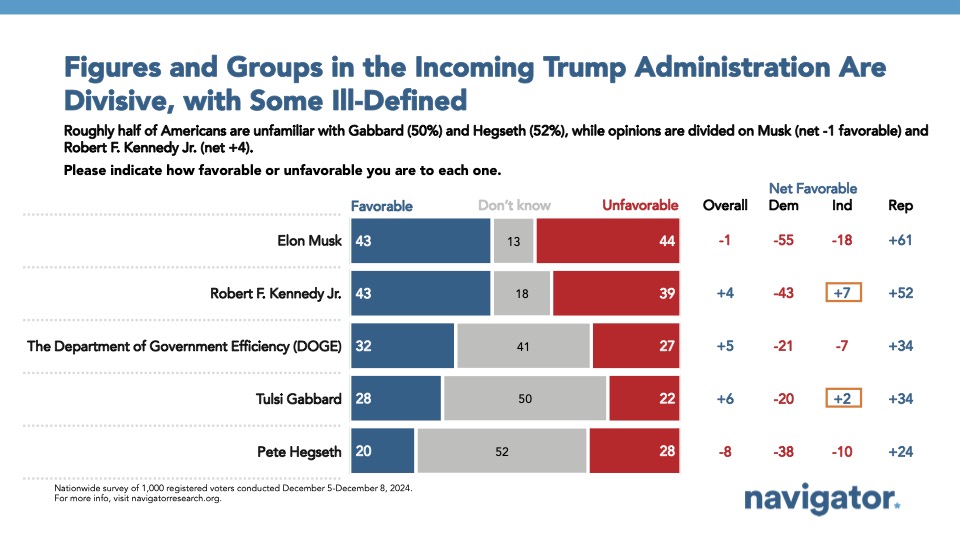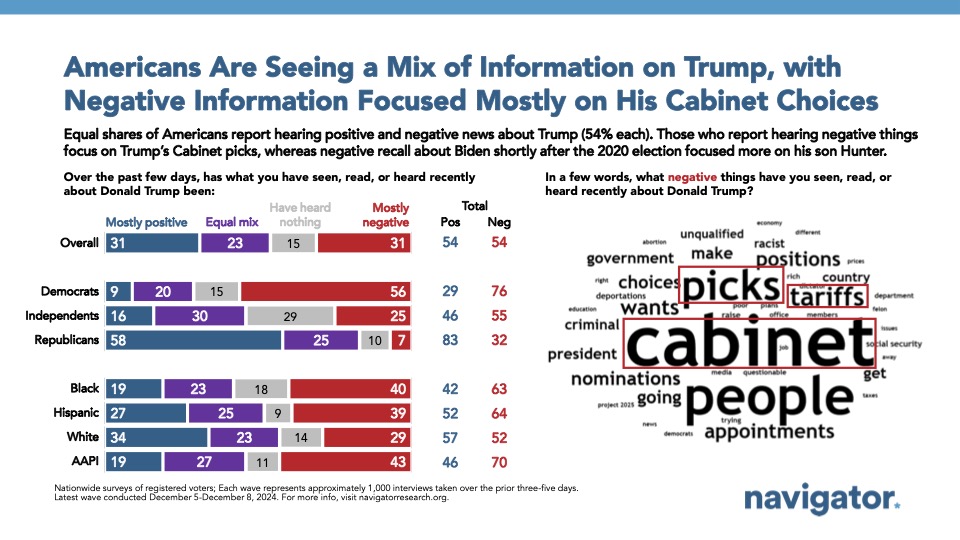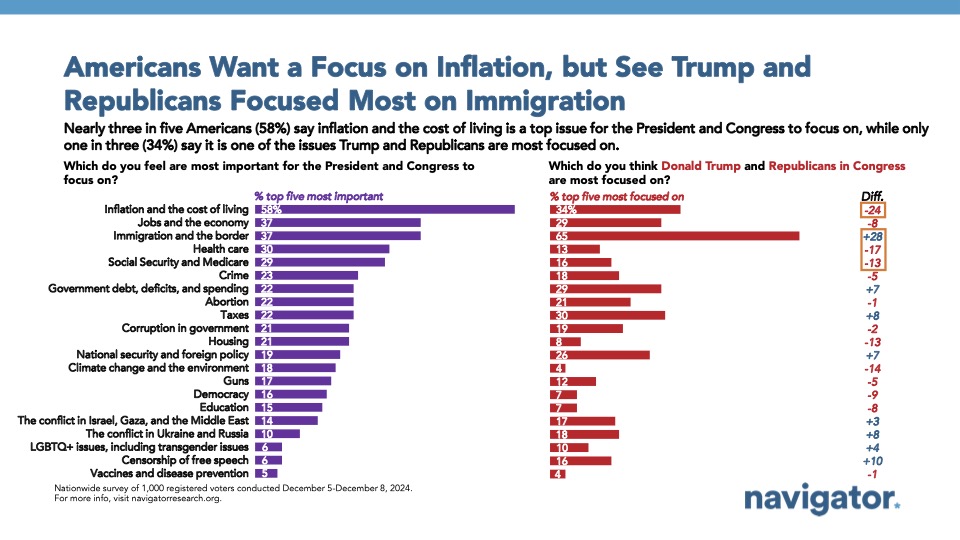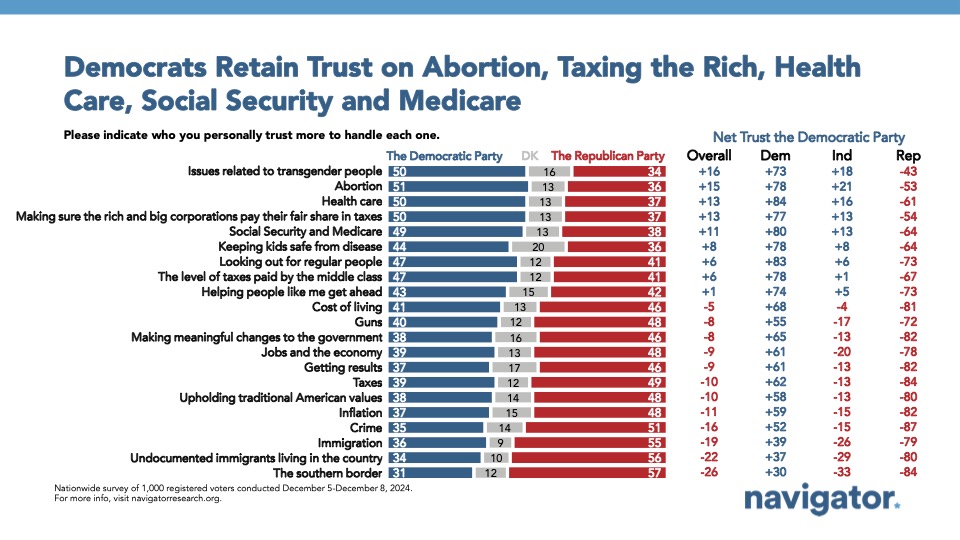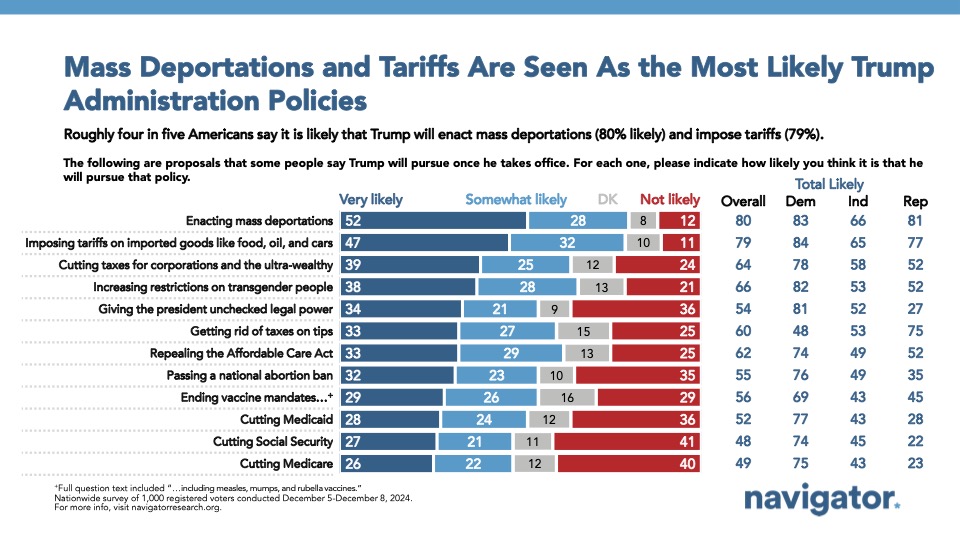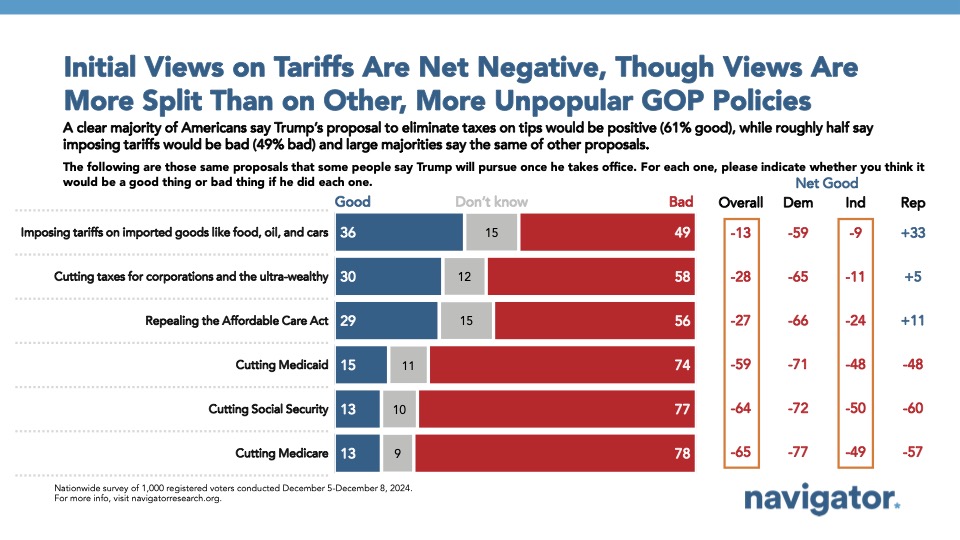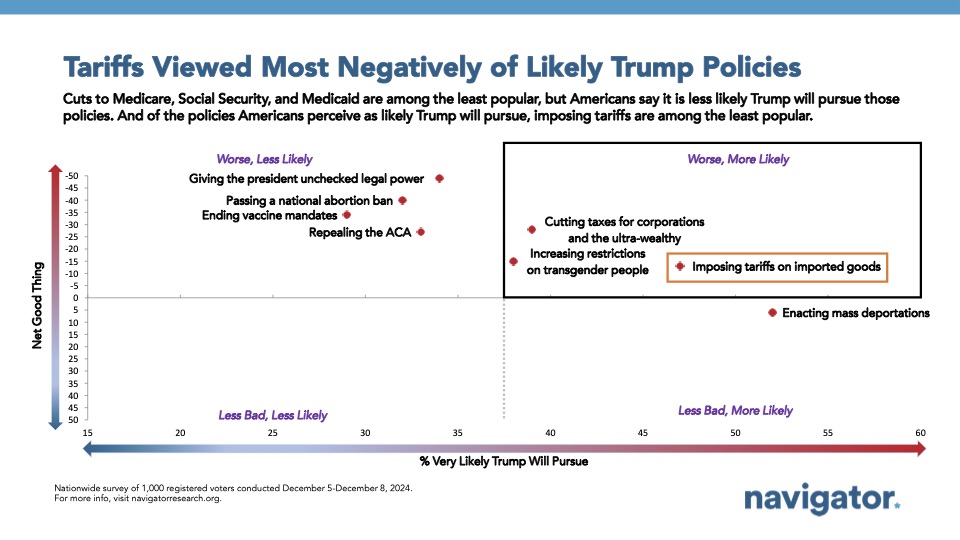Poll: The Future Trump Administration
This Navigator Research report is about the latest perceptions of the incoming Trump administration, including favorability of key figures and groups, what Americans are hearing about Trump in the news, what policies Trump and Republicans are seen as most focused on, and how Americans believe his proposed policies would impact the country.
Trump’s favorability is at a high point in Navigator’s tracking with Americans hearing a mix of positive and negative news about him.
Donald Trump’s favorability rating is three-points underwater (net -3; 47 percent favorable – 50 percent unfavorable), a net 13 point increase from September when his favorability rating was 16 points underwater (41 percent favorable – 57 percent unfavorable). Americans are also split on the news they are hearing about Donald Trump, with 31 percent of Americans hearing mostly negative news, 31 percent hearing mostly positive news, and 23 percent hearing a mix of both positive and negative news. When describing the news they are hearing about Donald Trump, phrases with the word “cabinet” emerge for both positive and negative news.
Americans are divided on Trump’s cabinet picks, including Robert F. Kennedy Jr. who is viewed favorably by a 4-point margin (43 percent favorable – 39 percent unfavorable). Tulsi Gabbard’s favorability is 6 points underwater (28 percent favorable – 22 percent unfavorable), and Pete Hegseth is 8 points underwater (20 percent favorable – 28 percent unfavorable), though most Americans are unsure about both Gabbard (50 percent don’t know) and Hegseth (52 percent don’t know)
The Department of Government Efficiency (DOGE) is largely undefined, but viewed favorably by a 5-point margin (32 percent favorable – 27 percent unfavorable). Elon Musk’s net favorability is divided (net -1; 43 percent favorable – 44 percent unfavorable).
A majority of Americans say that the President and Congress should prioritize the economy but believe Republicans are prioritizing immigration.
58 percent of Americans, including 66 percent of Republicans, 60 percent of independents, and 49 percent of Democrats believe the President and Congress should be focused on inflation and the cost of living, with the second most selected priority being jobs and the economy (37 percent). A majority of Americans view the Republican Party as out of step with these priorities, and most focused on immigration and the border (65 percent), including 71 percent of Republicans, 61 percent of Democrats, and 56 percent of independents. Donald Trump and Republicans are seen as the most trusted to handle the cost of living (net -12; 39 percent trust Democratic Party – 51 percent trust Trump and Republicans), while Democrats are seen as most trusted to handle specific economic issues like taxing the rich (net +11; 48 percent trust Democratic Party – 37 percent trust Trump and Republican Party), Social Security and Medicare (net +7; 48 percent trust Democratic Party – 41 percent trust Trump and Republican Party), and health care (net +6; 47 percent trust Democratic Party – 41 percent trust Trump and Republican Party).
Democrats are underwater in a head to head with Donald Trump and Republicans when it comes to “looking out for regular people” (net -3, 45 percent trust Republican Party – 42 percent trust Democratic Party), though Democrats have a 6 point advantage on “looking out for regular people” when compared to the Republican Party without mention of Donald Trump (net +6; 47 percent trust Democratic Party – 41 percent trust Republican Party).
Mass deportations and tariffs are seen as the most likely policies Trump will try to enact.
Four in five Americans believe it is likely that Trump will pursue enacting mass deportations once he takes office (80 percent likely – 12 percent not likely), including 83 percent of Democrats, 81 percent of Republicans, and 66 percent of independents. Four in five believe Trump will pursue imposing tariffs on imported goods (79 percent likely – 11 percent not likely), with a plurality believing the policy would be bad for the country (net -13; 36 percent good – 49 percent bad). Other economic policies, like cutting taxes for the ultra-wealthy, are seen as a likely path that Trump will pursue (64 percent likely – 24 percent likely), as well as bad for the country (net -28; 30 percent good – 58 percent bad).
Repealing the Affordable Care Act and cutting Medicaid are seen as policies that Trump is likely to pursue in his next term (62 percent likely repeal ACA, 52 percent likely cut Medicaid), as overwhelming majorities believe both would be bad for the country (repealing ACA; net -27; 29 percent good – 56 percent bad, cutting Medicaid; net -59; 15 percent good – 74 percent bad).
Majorities believe it is likely Trump will increase restrictions on transgender people (66 percent likely – 21 percent not likely), as half believe such restrictions would be bad (35 percent good – 50 percent bad).


